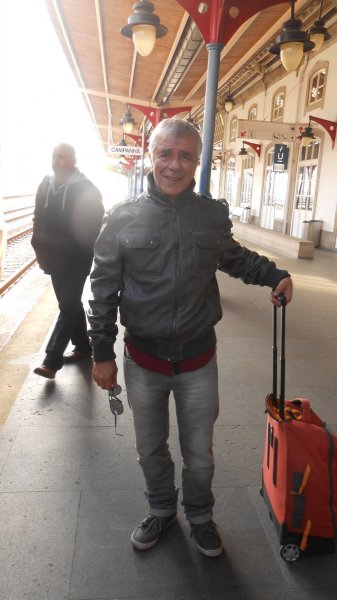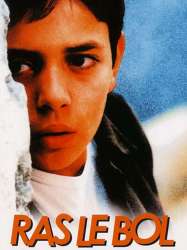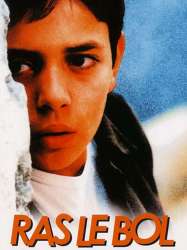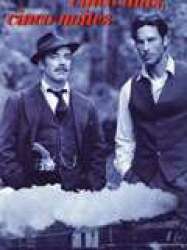Vítor Norte est un Acteur Portugais né le 29 janvier 1951

Vítor Norte (born January 29, 1951) is a Portuguese actor and voice actor. He was born in Borba in Portugal. He won the Portuguese Golden Globe award for best actor three times.
In 2002, he appeared in, and won, season 2 of the Portuguese reality television show Celebrity Big Brother.
From his career in the theatre, its to be noticed the participation in Ay Carmela from the author José Sanchis Sinisterra, directed by Xosé Blanco Gil in Teatro Ibérico; Volpone of Ben Johnson, directed by Norberto Barroca in Teatro Aberto; Às Seis o Mais Tardar of M. Perrier, with Alexandre de Sousa in Instituto Franco Português; Horácios e Curiácios of Bertolt Brecht, with Antonino Solmer; Auto da Barca do Inferno of Gil Vicente, by Carlos Avilez; Os Quatro Cubos of Fernando Arrabal, by Herlander Peyroteo; Jogos de Praia of Whitehead, with João Canijo.
He started on TV in Vila Faia (RTP, 1982), after which there has been lots of work in series and mini-series like Rua Sésamo - The Sesame Street- (1990), Cluedo (1995), Alentejo Sem Lei (1990), Os Melhores Anos (1990), O Bairro da Fonte (SIC, 2000) or Capitão Roby (SIC, 2000); telemovies - Mustang of Leonel Vieira and Monsanto of Ruy Guerra; soap-operas (2007 - Ilha dos Amores, 2005 - Ninguém como Tu, 2003 - Queridas Feras, 2001 - Ganância, 1995 - Desencontros, 1994 - Na Paz dos Anjos).
With a regular presence in the cinema, he began in 1982 in A Vida é Bela, of Luís Galvão Telles. Collaborated with directors like Jorge Silva Melo, Luís Alvarães or José Fonseca e Costa, whom would direct Vitor in Cinco Dias, Cinco Noites (1995), one of his most significant performances. With the same director he also did A Mulher do Próximo (1988), Os Cornos de Cronos (1992) and O Fascínio (2003). To be noticed No Dia dos Meus Anos by João Botelho, Ao Sul (1995) by Fernando Matos Silva, Sapatos Pretos (1998) by João Canijo, Jaime (1999) by António Pedro Vasconcelos, Respirar Debaixo de Água (2000) by António Ferreira, O Gotejar da Luz (2002) by Fernando Vendrell, A Mulher Polícia (2003) by Joaquim Sapinho, Tarde Demais (2000) and Os Lobos (2008) by José Nascimento.
He was distinguished with two Golden Globes in the Best Cinema Actor in 1999 (Jaime, de António Pedro Vasconcelos); in 2000 (Tarde Demais, by José Nascimento); 2002 (O Gotejar da Luz, by Fernando Vendrell). He received in 1996 the Troféu Nova Gente as Best Actor for his performance in Cinco Dias, Cinco Noites by Fonseca e Costa (1996).
Vitor has two children, Diogo and Sara Norte.
Source : Wikidata
Vítor Norte

- Infos
- Photos
- Meilleurs films
- Famille
- Personnages
- Récompenses
In 2002, he appeared in, and won, season 2 of the Portuguese reality television show Celebrity Big Brother.
Biographie
Vitor left the Escola Industrial e Comercial de Estremoz (Industrial and Commercial school in Extremoz), to settle in Lisbon, when he was seventeen. He had multiple jobs, including truck driver helper and secretarial work. He had classic ballet classes with Ana Mascollo, did mimics workshops in the Calouste Gulbenkian Foundation, and began his work as an actor in the Casa da Comédia (house of comedy). During the Portuguese Colonial War, he was called to do his military service and he was for two years in Guinea Bissau.From his career in the theatre, its to be noticed the participation in Ay Carmela from the author José Sanchis Sinisterra, directed by Xosé Blanco Gil in Teatro Ibérico; Volpone of Ben Johnson, directed by Norberto Barroca in Teatro Aberto; Às Seis o Mais Tardar of M. Perrier, with Alexandre de Sousa in Instituto Franco Português; Horácios e Curiácios of Bertolt Brecht, with Antonino Solmer; Auto da Barca do Inferno of Gil Vicente, by Carlos Avilez; Os Quatro Cubos of Fernando Arrabal, by Herlander Peyroteo; Jogos de Praia of Whitehead, with João Canijo.
He started on TV in Vila Faia (RTP, 1982), after which there has been lots of work in series and mini-series like Rua Sésamo - The Sesame Street- (1990), Cluedo (1995), Alentejo Sem Lei (1990), Os Melhores Anos (1990), O Bairro da Fonte (SIC, 2000) or Capitão Roby (SIC, 2000); telemovies - Mustang of Leonel Vieira and Monsanto of Ruy Guerra; soap-operas (2007 - Ilha dos Amores, 2005 - Ninguém como Tu, 2003 - Queridas Feras, 2001 - Ganância, 1995 - Desencontros, 1994 - Na Paz dos Anjos).
With a regular presence in the cinema, he began in 1982 in A Vida é Bela, of Luís Galvão Telles. Collaborated with directors like Jorge Silva Melo, Luís Alvarães or José Fonseca e Costa, whom would direct Vitor in Cinco Dias, Cinco Noites (1995), one of his most significant performances. With the same director he also did A Mulher do Próximo (1988), Os Cornos de Cronos (1992) and O Fascínio (2003). To be noticed No Dia dos Meus Anos by João Botelho, Ao Sul (1995) by Fernando Matos Silva, Sapatos Pretos (1998) by João Canijo, Jaime (1999) by António Pedro Vasconcelos, Respirar Debaixo de Água (2000) by António Ferreira, O Gotejar da Luz (2002) by Fernando Vendrell, A Mulher Polícia (2003) by Joaquim Sapinho, Tarde Demais (2000) and Os Lobos (2008) by José Nascimento.
He was distinguished with two Golden Globes in the Best Cinema Actor in 1999 (Jaime, de António Pedro Vasconcelos); in 2000 (Tarde Demais, by José Nascimento); 2002 (O Gotejar da Luz, by Fernando Vendrell). He received in 1996 the Troféu Nova Gente as Best Actor for his performance in Cinco Dias, Cinco Noites by Fonseca e Costa (1996).
Vitor has two children, Diogo and Sara Norte.
Le plus souvent avec
Filmographie de Vítor Norte (10 films)
Acteur

Le Consul de Bordeaux (2012)
Origine Portugal
Genres Drame, Biographie
Acteurs Vítor Norte, Pedro Cunha, Manuel de Blas, Ana Cristina Oliveira
Rôle Aristides Sousa Mendes
Note61%






O Cônsul de Bordéus (2012)
, 1h30Origine Portugal
Genres Drame, Biographie
Acteurs Vítor Norte, Pedro Cunha, Manuel de Blas, Ana Cristina Oliveira
Rôle Aristides Sousa Mendes
Note61%






Mulher Polícia (2003)
, 1h24Réalisé par Joaquim Sapinho
Origine Portugal
Genres Drame
Acteurs Vítor Norte
Note51%





The film tells the story of a mother and a son from the interior of Portugal that run away to Lisbon to avoid being separated by the state institutions that want to take the child away from the mother.

O Gotejar da Luz (2002)
, 1h40Réalisé par Fernando Vendrell
Genres Drame
Thèmes Afrique post-coloniale
Acteurs Teresa Madruga, Vítor Norte
Rôle Barroso
Note67%





Rui Pedro is a fifty something man who returns to the ruins of the cotton plantation where he grew up in colonial Mozambique. In the almost silent opening to the film, Rui Pedro drives from one of the big cities of Mozambique, perhaps Beira, out to Bué Maria, where he spent his childhood and adolescence. There he finds the ruins of a house, which we later realize is the house in which he and his family once lived. Rui Pedro pitches camp by the river, where he encounters a young shepherd boy. Though the boy cannot speak Portuguese, Rui Pedro shares food and a cigarette with him. This meeting between the older white mana the young black boy foreshadows the relationship between Rui Pedro and Jacopo, the ferryman from his childhood. His visit recalls memories of his adolescence, and in particular a set of incidents that took place when he was fourteen and home from school for the summer break from school, dramatic incidence which would mark his life.

Tarde Demais (2000)
Réalisé par José Nascimento
Origine Portugal
Genres Drame
Acteurs Vítor Norte, Ana Moreira, Rita Blanco
Rôle Zé
Note67%






Lourdes (2000)
, 3hOrigine France
Genres Drame, Biographie
Acteurs Alessandro Gassmann, Florence Darel, Roger Souza, Sydne Rome, Helmut Griem, Günther Maria Halmer
Rôle Jacomet
Note73%





L'évocation de la vie de Bernadette Soubirous, qui à l'âge de 14 ans, vit apparaître dans la grotte de Massabielle la vierge Marie.

Jaime (1999)
, 1h51Réalisé par António-Pedro Vasconcelos
Origine Portugal
Genres Drame
Acteurs Joaquim Leitão, Nicolau Breyner, Vítor Norte, Guilherme Leme, Rogério Samora, António-Pedro Vasconcelos
Rôle Garcez
Note69%






Ras le bol (1999)
Réalisé par António-Pedro Vasconcelos
Genres Drame
Thèmes La famille
Acteurs Joaquim Leitão, Vítor Norte, Nicolau Breyner, Rogério Samora, António-Pedro Vasconcelos
Rôle Garcez
Note69%





Dans un quartier populaire de Porto, Jaime a 13 ans quand il doit subir la séparation de ses parents. Sa mère part avec son amant et emmène son fils avec elle. Mais le garçon n'accepte pas cette situation et fait tout ce qu'il peut pour tenter de réconcillier ses parents.

Cinco Dias, Cinco Noites (1996)
Réalisé par José Fonseca e Costa
Genres Drame
Acteurs Paulo Pires, Vítor Norte, Ana Padrão, Miguel Guilherme, Rita Durão
Rôle Lambaça
Note65%






Agosto (1988)
, 1h30Réalisé par Jorge Silva Melo
Origine France
Genres Drame
Acteurs Olivier Cruveiller, Rita Blanco, Diogo Dória, Diogo Dória, Alexandra Lencastre, José Nascimento
Rôle Guard GNR
Note64%





 Connexion
Connexion

